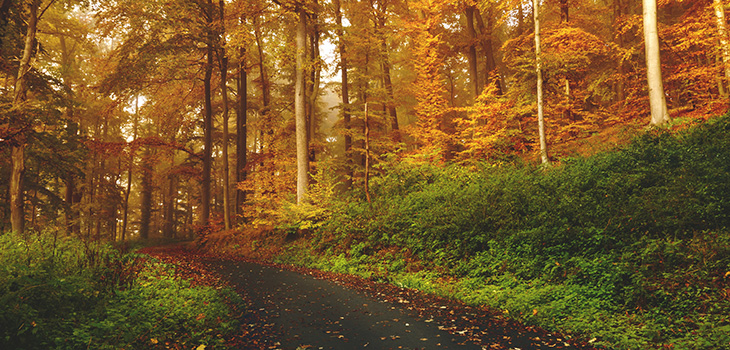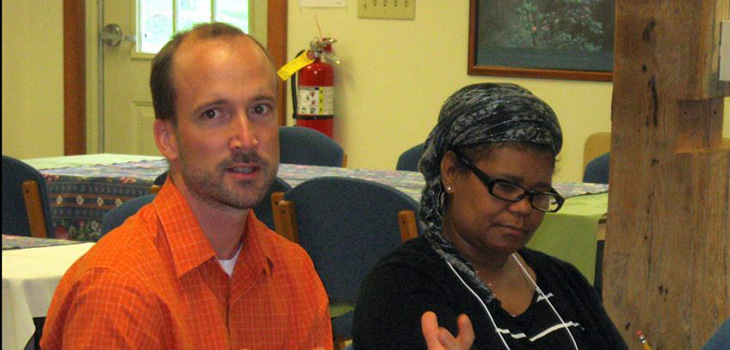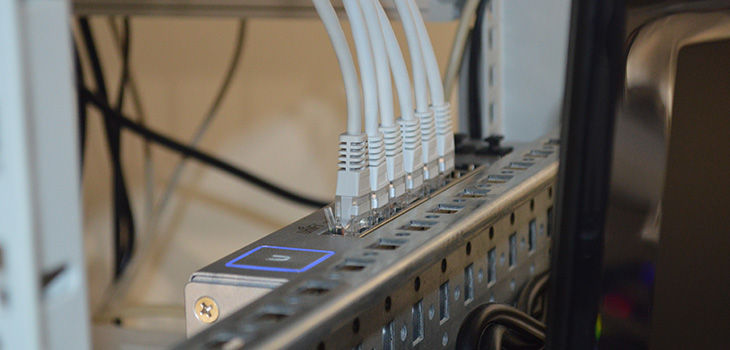“Water, and the experience of it, forms…the backbone of Goshen College’s Sustainability Leadership Semester (SLS)…each fall,” wrote Jonathon Schramm, associate professor of sustainability and environmental education.
Since the SLS began in 2012, this immersive, residential semester uses water as a tool and gateway to broader discussions about how students can influence the holistic health of communities. The program has gone on to graduate 45 individuals who make positive impacts in their communities and personal lives today.
This fall, we celebrate ten years of transformational learning and leadership by Honoring the Headwaters: 10 Years of SLS.
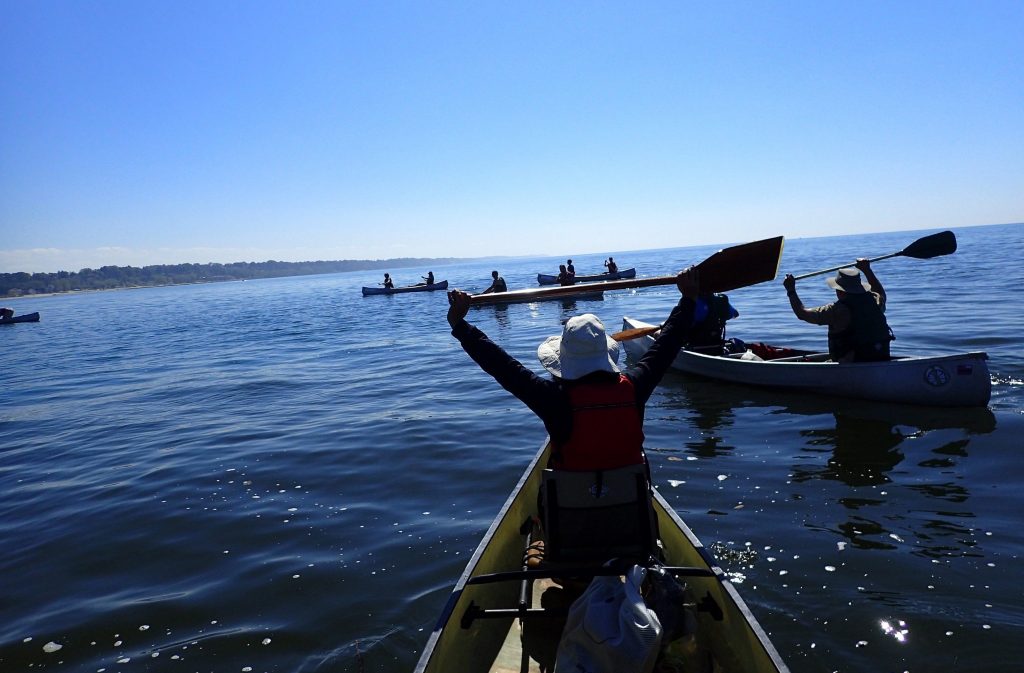
Headwaters are the sources of a river; thus, it has profound impacts downstream as organisms, sediments, contaminants and other features are dispersed throughout the entire body of water from the headwaters.
Merry Lea’s lakes are a headwater area of the St. Joseph watershed: all water from Merry Lea flows into the Elkhart River, into the St. Joseph River, into Lake Michigan.
What we do here at Merry Lea impacts everything downstream. Not only do we ecologically impact the waterways and habitats throughout the watershed, but the SLS is a headwater for impacting sustainability initiatives in our watershed and beyond.
Transformation Learning by Canoeing
Set within this context of the St. Joseph watershed, the SLS takes an interdisciplinary and hands-on approach to studying and practicing sustainability. Each cohort that arrives at Merry Lea to live and learn throughout the fall becomes immersed in the watershed right away.
At the start of their second week into the SLS in early September, each cohort canoes about 100 river miles over eight days from Merry Lea to Lake Michigan.
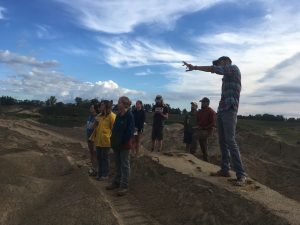 The students begin at the headwaters of the Elkhart River near Merry Lea and canoe down the river into the St. Joseph River and end at Lake Michigan. This up-close encounter with the water and the communities along the way frame the rest of the semester for SLS students.
The students begin at the headwaters of the Elkhart River near Merry Lea and canoe down the river into the St. Joseph River and end at Lake Michigan. This up-close encounter with the water and the communities along the way frame the rest of the semester for SLS students.
As they canoe downstream, they witness the consequences of human and non-human activities upon the environment by paddling through major changes in the water. They feel the current slowing before a dam and dip their oars in algal blooms caused by agricultural runoff.
“The canoe trip gives a good foundation for the rest of the semester,” said Denver Beck, an SLS student from 2020. According to Denver, they gained tangible examples of how everyday actions can affect the water and landscape by traveling through the entire watershed.
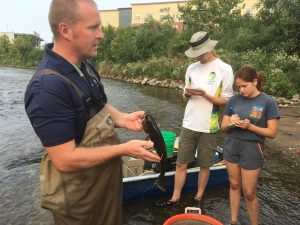
Along the way, students get out of their canoes and talk with local leaders and experts working in the broad field of sustainability. Cohorts have interacted with stakeholders such as mayors, a pastor who baptizes members in the river, a gravel company, a sustainability officer at a waste management company and more.
“Stopping on the side, meeting people doing tangible things within that place is powerful,” said Denver. Talking about sustainability can be abstract and sometimes full of grief or hopelessness when discussing climate change. “But meeting these people making a difference in these local communities and seeing examples of steps you can take and work you can be doing,” was a big takeaway for Denver.
Learning About Place-Based Sustainability
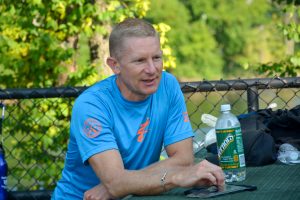 When this year’s SLS cohort canoed through South Bend, Ind. halfway through their trip, they met with Matt Meersman, director of St. Joseph River Basin Commission. He works with city mayors, county commissioners and other local legislators to protect the St. Joseph watershed by incorporating water quality and flood mitigation techniques in their policies and plans.
When this year’s SLS cohort canoed through South Bend, Ind. halfway through their trip, they met with Matt Meersman, director of St. Joseph River Basin Commission. He works with city mayors, county commissioners and other local legislators to protect the St. Joseph watershed by incorporating water quality and flood mitigation techniques in their policies and plans.
He described his main goal as getting the community to view water as an asset, rather than a waste product or nuisance. The methods he uses to tackle such are very sociological: finding the intersection between community perceptions and root ecological issues. He gathers information about what environmental problems their community faces, whether it’s flooded farm fields or bridges in disrepair, and uses that as a potential for addressing long-term, sustainable solutions.
 These discussions are fruitful for students to see potential career paths and opportunities for community engagement. And some stops are interactive and involve networking with other peers for knowledge-sharing.
These discussions are fruitful for students to see potential career paths and opportunities for community engagement. And some stops are interactive and involve networking with other peers for knowledge-sharing.
On the fourth day into their trip, the 2021 SLS students arrived at the pedestrian bridge on Indiana University South Bend’s campus, which crosses the St. Joseph River. As IUSB students walked quickly to and from classes across the bridge with backpacks full and headphones on, beneath them were seven SLS students with waterbags and bucket hats, hauling canoes up the embankment. This made for a striking contrast of what class time looked like in that moment.
The students met with two IUSB faculty members and a few student representatives. Krista Bailey, Director of the Center for a Sustainable Future, and Dr. Deborah Marr, associate professor of biology, discussed some of the sustainability programs and initiatives occurring on their campus.
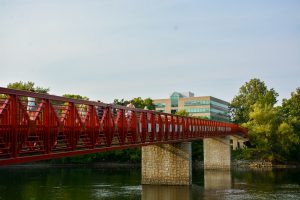 Gathered between two small prairies, Krista and Deb described various student-focused sustainability projects, such as a campus garden and beehives that students help maintain. Professors also utilize the St. Joseph River that runs through campus and prairies on the grounds for hands-on classes.
Gathered between two small prairies, Krista and Deb described various student-focused sustainability projects, such as a campus garden and beehives that students help maintain. Professors also utilize the St. Joseph River that runs through campus and prairies on the grounds for hands-on classes.
As the group walked through IUSB’s campus, the SLS students asked questions and compared notes about Goshen College’s sustainability projects with the IUSB faculty and students leading them.
Practicing Place-based Leadership
The group walked to the nearby botanical gardens and conservatories, Potawatomi Conservatories, where more people joined them. Local students and faculty from IUSB, Saint Mary’s College and Goshen College gathered over a pizza dinner and discussed sustainability at their respective campuses.
Alexa Kennel ‘23, an SLS student majoring in sustainability studies at Goshen College, split the students and faculty in three groups based on their college. Each group then discussed what campus sustainability initiatives they are proud of and what they wish would be improved at their college.
Goshen College students shared about the schools’ progress in energy efficiency and clean energy, along with restoration and conservation work at Merry Lea and the main campus’ native prairies.
Saint Mary’s students shared how well their campus engages in food and waste management. They have a student-led composting program, recycling boxes for hard-to-recycle items like eyeglasses, and their dining hall donates excess food to a local food shelter.
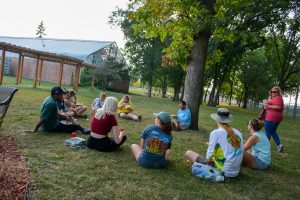 IUSB students praised the LEED (Leadership in Energy and Environmental Design) certified housing for IUSB students. LEED certification designates that these buildings were designed and built in a way that contribute to energy savings, water efficiency, reduced carbon dioxide emissions and other metrics.
IUSB students praised the LEED (Leadership in Energy and Environmental Design) certified housing for IUSB students. LEED certification designates that these buildings were designed and built in a way that contribute to energy savings, water efficiency, reduced carbon dioxide emissions and other metrics.
Across the different schools, students identified the need for better waste management and organic food choices in dining halls, and better organization around campus gardening.
After hearing these shared outcomes, Alexa organized groups based on interest: composting, waste management and recycling, and ecosystem management. This became an opportunity for students – from undergrads to graduate students – and faculty alike to share ideas and network across their institutions.
Groups informally workshopped specific issues, like student organizing around composting, or how to combat pushback from converting lawns into native prairies.
“I like bringing people together and talk about things we’re interested in,” said Alexa. Being “with my people” is a source of renewal as well as a network to learn how others are dealing with similar issues. Alexa described how talking about success is a great way to combat the “doom and gloom” of climate change and the challenges that sustainability can bring.
Returning to the Headwaters
Even just two weeks into the SLS, this event provided a brief glimpse into how students have already taken ownership of their learning and begun impacting sustainability in the watershed. “As a group, we came up with questions and the format” for this roundtable discussion, said Alexa. Individuals walked away with concrete ideas and contact information for further connection.
The SLS students have since finished their canoe trip, where they camped along the river and awoke to foggy sunrises over the quiet water. After experiencing the entire watershed through paddling and community, these students returned to Merry Lea where they are continuing transformational learning and leadership development.
As students take courses in policy, ethics, economics, sociology and faith throughout the semester, they can refer to firsthand examples they experienced during their canoe trip. They continue to build upon the backbone of the SLS in exploring and influencing the social, economic and environmental systems of our local society. Their weekly field trips and semester-long projects for their capstone course connect them to nearby communities for applied learning.
As we celebrate 10 years of the SLS, it will be exciting to see what projects and impacts these current students make downstream into the program.

